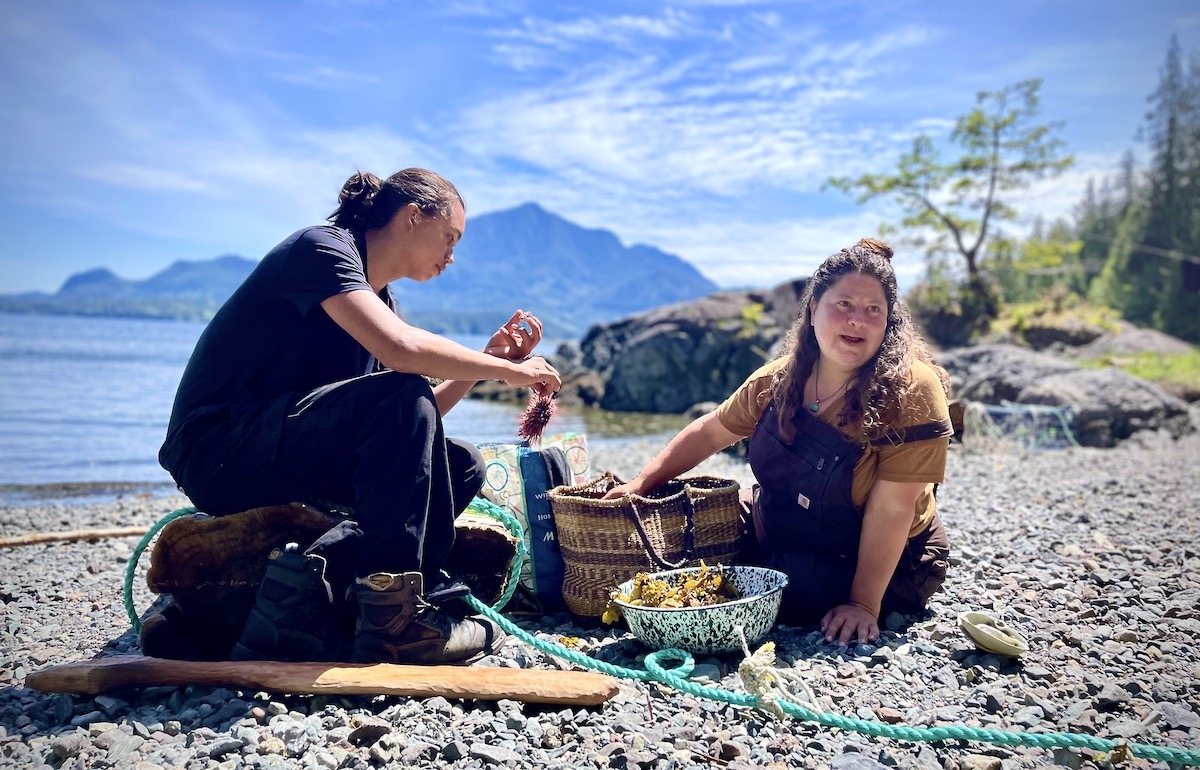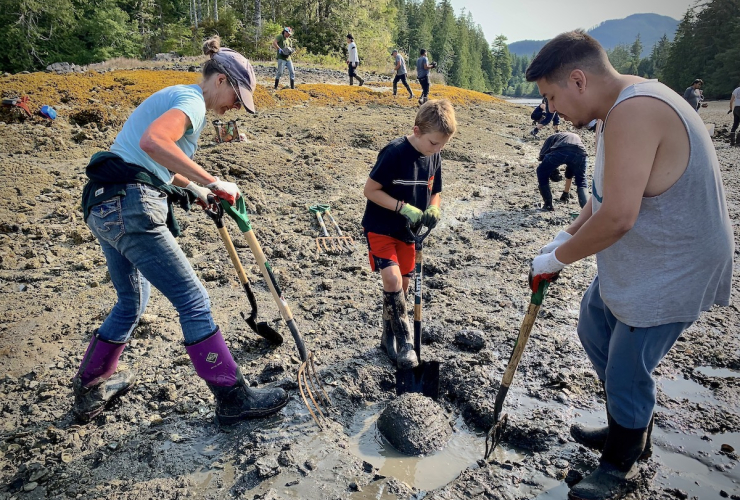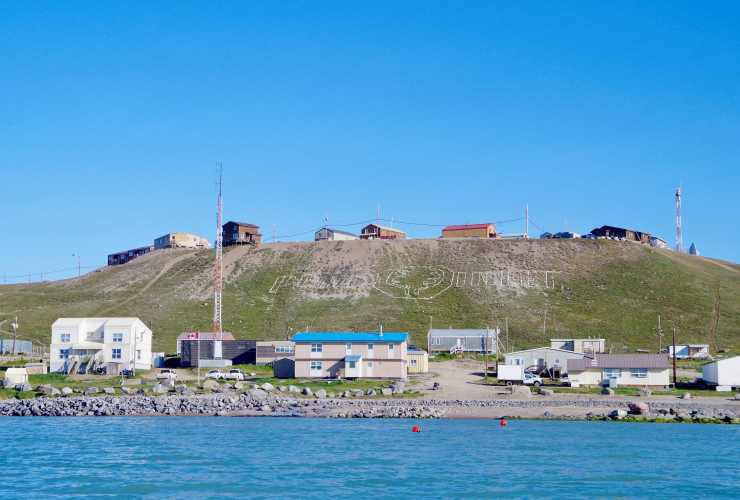First Nations from across Vancouver Island are gathering this week to celebrate and strengthen traditional food sovereignty and deepen Indigenous communities' response to climate change and other emergencies.
The landmark Island Indigenous Food Gathering near Port Alberni, B.C., involves hundreds of members from the Nuu-chah-nulth, Coast Salish and Kwakwaka'wakw First Nations from both coasts and the length of the island, said organizer Nitanis Desjarlais.
The Indigenous-led event on Thursday and Friday will allow participants to network, strategize and exchange knowledge and stories around traditional foods and practices, said Desjarlais, a member of the Nuu-chah-nulth Food and Nutrition Sovereignty Network.
One objective of the summit is to develop a broader, co-operative and sustainable food sovereignty strategy for First Nations communities in the region, she said.
Conversations about the need to bolster Indigenous food sovereignty began during the COVID-19 pandemic when panic-buying and emptied store shelves were a real concern for smaller, remote communities at the end of the supply chain.
However, the need to strategize and hold the food gathering crystallized after the Cameron Bluff wildfire last summer forced the shutdown of Highway 4 — a key transportation corridor and the only paved road serving Port Alberni, numerous coastal Nuu-chah-nulth nations, communities and the tourist hot spots of Ucluelet and Tofino on western Vancouver Island.
The road closure, which lasted much of the summer, made it difficult for families and small isolated communities to travel to urban centres on eastern Vancouver Island to buy food at lower prices.
Heat domes, more extreme weather, drought and warming oceans are other climate impacts that are putting stress on traditional food sources like salmon, shellfish, seaweed and herring, Desjarlais said.
The food gathering, hosted by the Ahousaht First Nation in partnership with the Tseshaht First Nation in their traditional territory, provides a broad forum for many communities to talk about sustaining traditional foods.
“We all have amazing cultural foods and want to look at how they are doing, and are they being impacted by things like climate change,” Desjarlais said.
“We’ll have some strategic planning around emergency preparedness and conversations around policies and legislation when it comes to food sovereignty.”
As opposed to simple food security, traditional food sovereignty is more than securing regular access to food during moments of crisis, she noted.
It focuses on strengthening healthy, culturally appropriate and local foods that are sustainably managed. It also examines where the benefits, rights and decisions around those food systems remain with Indigenous producers or harvesters.
In addition to empowering communities, the event will explore economic development opportunities for First Nations around traditional foods and knowledge.
However, the food gathering won’t examine traditional foods through a “doomsday” lens, Desjarlais stressed, but as a road map for continued action.
“The event is bringing people together to celebrate and acknowledge the resilience of these cultural ways, and the stories from elders, hunters and harvesters still going out and providing food for our communities,” she said.
Traditional foods intertwined with the land and water in traditional territories are the backbone of Indigenous cultures, Desjarlais said.
For example, the recent herring roe harvest in Nuu-chah-nulth waters and elsewhere on Vancouver Island brings sustenance, joy and healing to coastal communities.
The annual return of the spring Pacific herring spawn ushers in the new year for coastal First Nations, providing a feast for the people and animals that depend on it, Desjarlais said. Boats that conduct tests and surveys of the spawn pull up to the community dock and call out to folks on the VHF radio to come down, gather and fill their bowls and buckets with tiny glistening eggs nestled on seaweed.
“Everything is alive. The ocean is bubbling and it's loud,” she said, noting seals, eagles and seabirds all join the frenzy.
“The herring bring that excitement and abundance that feeds the community.”
Relying on traditional foods has allowed Indigenous people to surmount pandemics, natural disasters like tsunamis or other crises over thousands of years and will help them again in the future, Desjarlais said.
“There’s a lot of stories up and down the coast that talk about these hard times and how people were able to survive,” she said.
“We have our way to take care of ourselves. So, there will be that celebration of resilience and honouring our food systems.”
Rochelle Baker / Local Journalism Initiative / Canada's National Observer






Comments